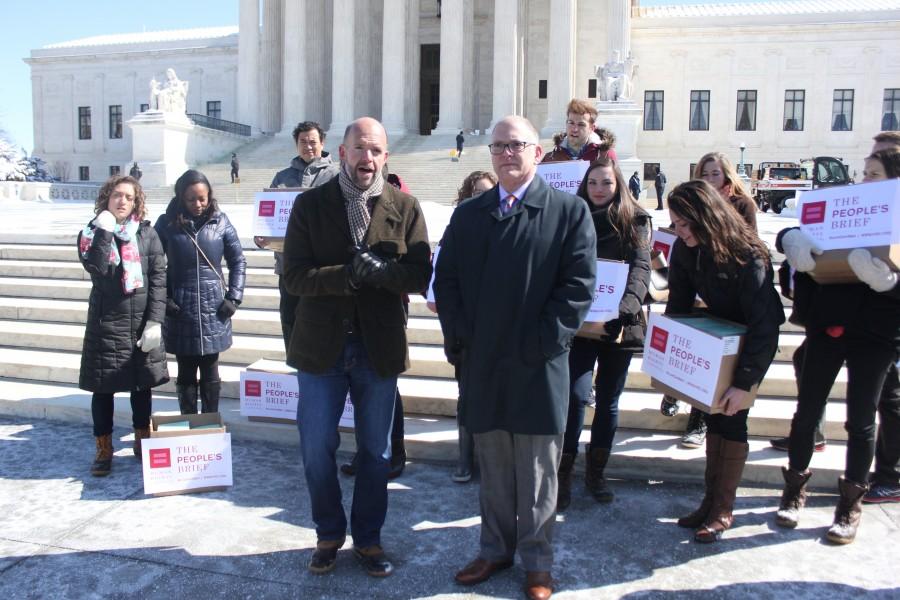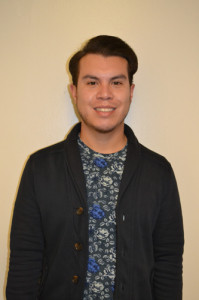WASHINGTON – The fight for same-sex marriage equality made a signature move – 207,551 signatures to be exact.
The signatures were presented Friday to the Supreme Court in what the sponsors said was the largest amicus brief filing in history.
An amicus brief is a petition filed by someone not directly involved in a case to help bring awareness or additional information to the court.
The Human Rights Campaign, which advocates for lesbian, gay, bisexual and transgender civil rights, delivered what it called the People’s Brief to the Supreme Court, with signatures from across the country calling for gay-marriage equality.
The brief was presented by Fred Sainz, vice president of communications for HRC, and Jim Obergefell. Obergefell’s case, Obergefell v. Hodges, is scheduled for argument before the court on April 28.
Obergefell, 49, and his late husband, John Arthur, married in 2013 after the Supreme Court struck down the Defense of Marriage Act in the Windsor case. Since Ohio does not recognize same-sex unions, the couple flew to Maryland to wed. Arthur died of amyotrophic lateral sclerosis, better known as ALS or Lou Gehrig’s disease, later that year.
“I didn’t really even think about being part of the fight until the following week after we married,” Obergefell said. “I met with my attorney and he told me that when John died, his death certificate would say he was single. That’s when I decided it was worth fighting for.”
Ohio does not recognize Obergefell, a Cincinnati real estate agent, as Arthur’s surviving spouse.
Sainz said that the People’s Brief represents not only Obergefell and the gay community but also the entire nation.
“I believe that the majority of Americans want same-sex marriage to be legal nationwide and it’s represented in this brief. We have signature from all 50 states,” Sainz said.
The HRC gathered petitions online and through social media, including Facebook and Instagram.
“This brief is unique in that it used social media to spread the message and gather electronic signatures,” Sainz said.
Roberta Kaplan, who was a lawyer in the Windsor case, wrote the brief.
“I am for marriage equality,” Kaplan said. “The HRC approached me to write the People’s Brief because we had been successful with the Windsor case. … It’s time to show America that we want the same rights for gay people as we do for everyone else.”
As he stood in front of the Supreme Court, Obergefell said he was in a state of disbelief.
“I am stunned,” Obergefell said. “I’m here in D.C. with thousands of Americans on my side. It’s unbelievable.”
Obergefell plans to attend the argument and return in June when the court is likely to decide the case.
Before the People’s Brief, the largest amicus brief presented to the Court had a total of 13,000 signatures, in an affirmative action case involving law schools, Sainz said. A spokeswoman for the court said it would have to research the signature question.
It took four days to print 50 copies – the number required by the court – of the 3,500 page brief.
Reach Reporter Jose Soto at [email protected] or at 202-408-1494.












